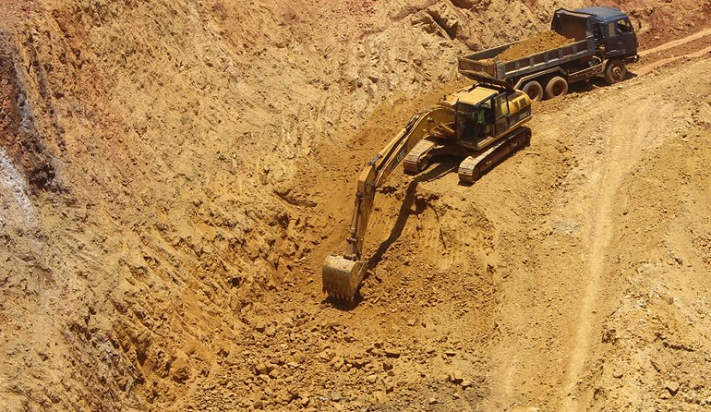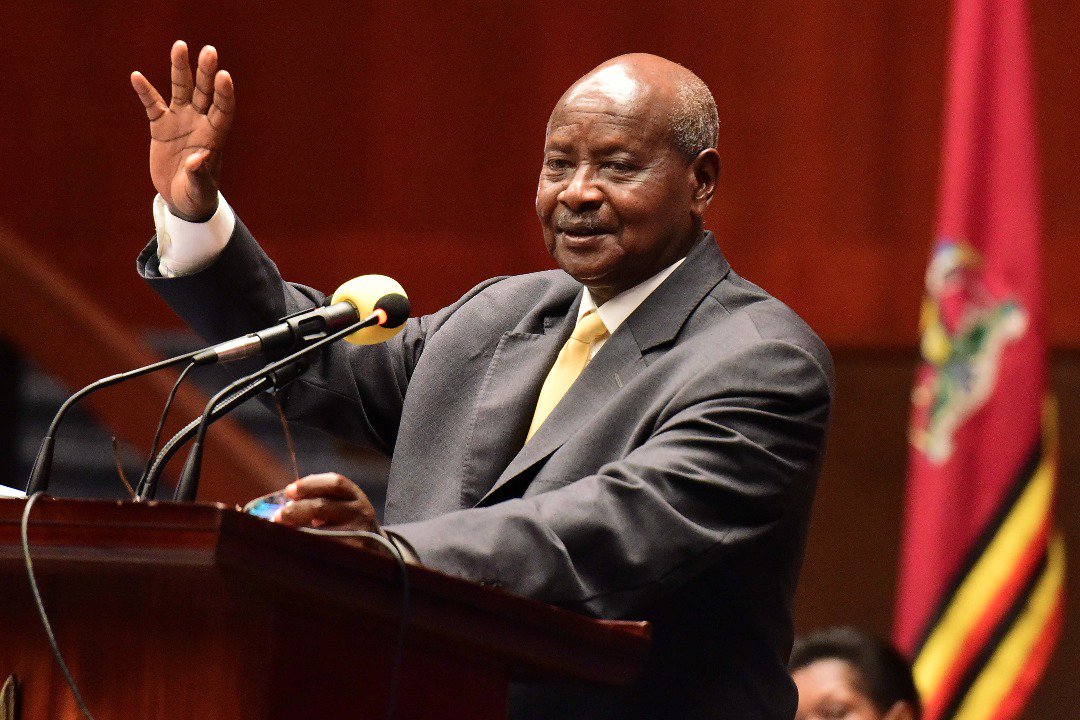A deep pit at Tira Gold Mine Operated by Greenstone Resources Ltd in Busia
The cabinet is expected to meet this week meet to consider whether to lift a ban on semi-processed minerals. Uganda is among countries like Tanzania, Indonesia that banned the export of raw minerals.
There are indications that the ban has taken a toll on mining operations since 2013 when President Museveni imposed a moratorium on the export of unprocessed iron ore and a ban on all others minerals in February 2015.
Mining companies have been urging the government to lift the ban. They have argued that Uganda does not have the processing capacity for all of its ore, so, the ban has forced many to scale back production. Some mining companies have threatened to suspend operations entirely since the bulk of their revenue comes from the export of semi-processed minerals, especially gold.
Amidst the concerns, the new Energy and Minerals Minister, Ruth Nankabirwa is faced with a policy dilemma on whether to maintain the ban or lift it to unlock the sector from underperformance.
Nankabirwa was hesitant to reveal whether the ban should be lifted at the time when she has publicly declared intention to accord the mining sector similar attention to accorded the oil and gas.
She said the question about the ban will be taken by a cabinet meeting this Monday upon considering a technical briefing paper by the Directorate of Geological Surveys and Mines -DGSM.
“I will be able to give you concrete information after a paper I’m presenting to cabinet on Monday is done,” said Nankabirwa.
President Museveni in February 2015 suggested a ban on the export of unprocessed and semi-processed-minerals saying the country was not benefitting from its vast mineral resources.
Museveni, then addressing the NRM Parliamentary caucus said there was need to put an end to what he described as a historical mistake of exporting minerals without adding value to them.
Museveni was of the view that minerals unlike agricultural products were exhaustible and, therefore needed to be sustainably exploited.
The then Minister for Energy and Minerals, Irene Muloni effected the ban in July 2015. She said while the country needed money from the export of minerals, it needed to get more value. “Why do we donate raw materials to the outside world?” asked Muloni then. “We need the money yes. But is it worth donating an item at maybe 10% of its value? Whereas if you actually processed it here, you are going to add value, you are going to create jobs for our people. And with value addition, you are going to earn more as a country,” said Muloni.
As the ban got implemented, it emerged that some of the mining operations had to scale down on employees and there were hardly any new investors in the sector. Mining operations were required to add value to the minerals before export.
Some of the players in the mining sector had questioned the rationale behind awarding an investor a mining lease to operate in a situation where there was a complete ban to operate. The Uganda Chamber of Mines and petroleum has been at the forefront of the campaign against the ban.
The Chamber brought the same issue to the attention of MPs at the time when Parliament was considering the Mining and minerals bill 2021, arguing that the government needs to be more systematic in order to help the mining sector to grow sustainably.
According to the 2019/2020 minerals sector report by the Directorate of Geological Surveys and Mines, production in menials dropped by 25.6% in 2019/20 compared to 2018/2019.
The drop in production was attributed to ban on export of unprocessed minerals. The report said there was a 52% drop in exports in 2019/2020 compared to 2018/2019 financial year. The Uganda Chamber of Mines and petroleum has also been advocating for a case-by-case implementation of the value addition requirement.
The issue of the need to lift the ban came up this week as Nankabirwa and technocrats from the Directorate of Geological Surveys and Mines -DGSM toured some of the mining operations in Eastern Uganda. Greenstone Resources Ltd which now operates Tira Gold Mine (also known as Busitema Gold Mine said it was facing financial constraints because it cannot export Dore bar gold (partially refined gold bar) to Dubai. “While there is no written communication from the DGSM of Government of Uganda, we are made to understand that no gold can be exported unless it has 99.9% purity” reads part of statement handed to the Minister by Green Resources Ltd.
Greenstone Resources Ltd reported producing Dore bar gold with purity ranging from 80-90% to a gold refinery based in Dubai but it has not exported since the ban was imposed.
Greenstone Resources Ltd Managing Director, Nimit Patel told the Minister that local gold refineries in Uganda were reluctant to buy Dore bar from VAT registered miners.
“In 2019 we sold gold dore bar to Simba Gold refinery based in Uganda, however, GRL was made to pay18% VAT on this sale transaction,” said Patel.
He revealed that Simba Gold Refinery had to face thorough audit by URA because as their other purchases were without VAT. “Since Gold Refineries in Uganda purchase their gold in cash from non-VAT registered suppliers, they do not want to purchase gold from a VAT registered to avoid queries by URA,” he said.
One of the technical officers at the Directorate of Geological Surveys and Mines who asked for anonymity said they there is a convincing case for lifting the blanket ban.
Minerals State Minister Peter Lokeris is of the view that some minerals that have had some extent of value addition should be allowed for export if there is no market in Uganda.
Some studies have warned against export restrictions on minerals, say the restrictions can also have costs for countries employing them; in particular, they can lower the returns on raw materials production, affecting efficiency costs for the economy overall.
-URN





